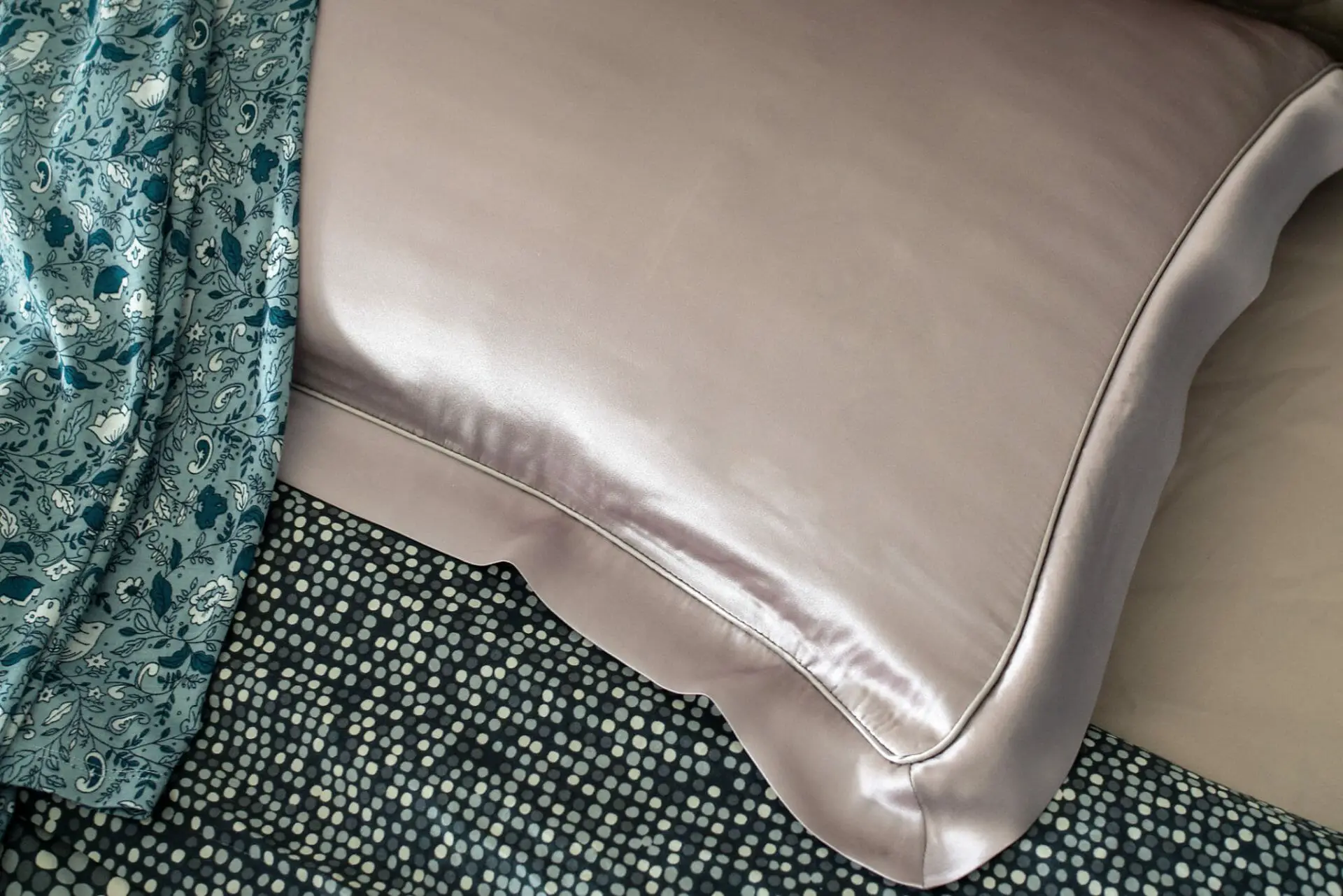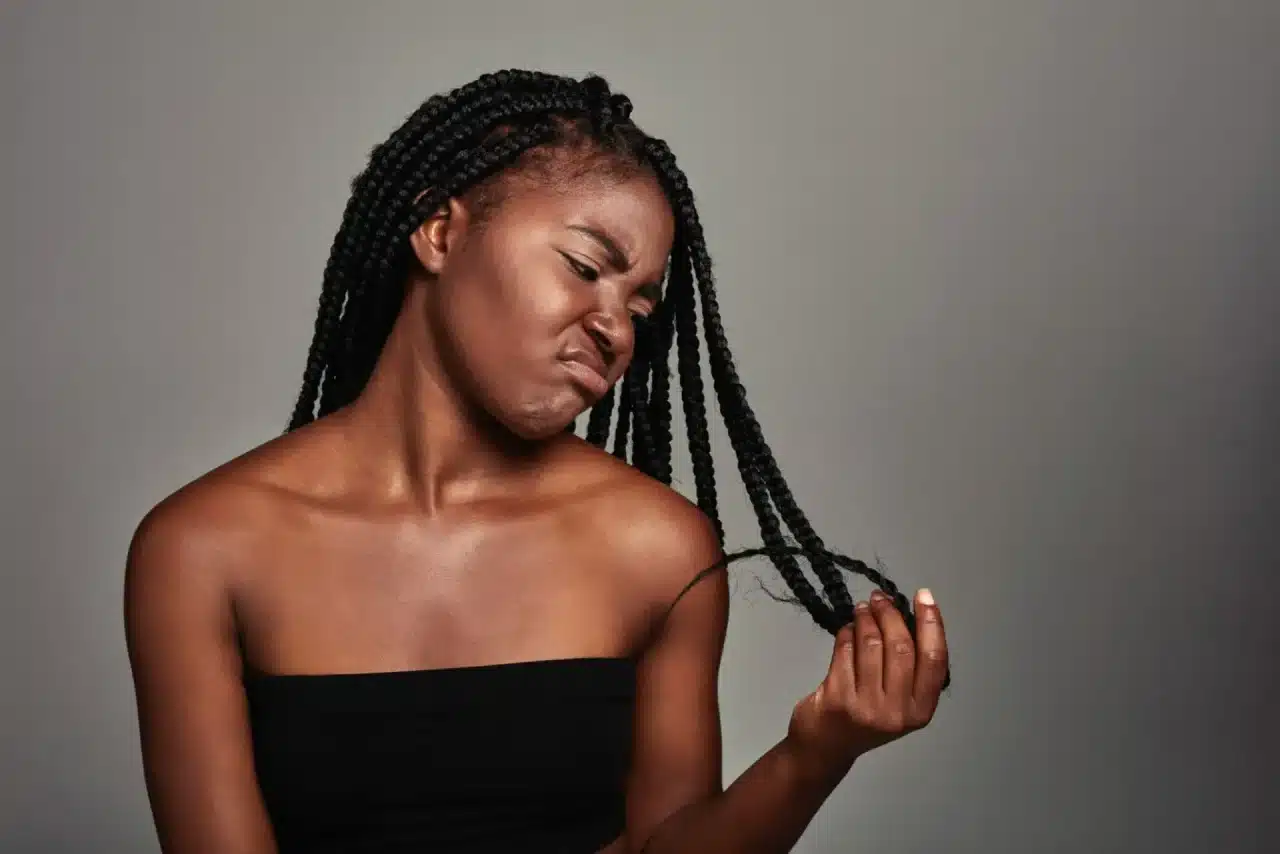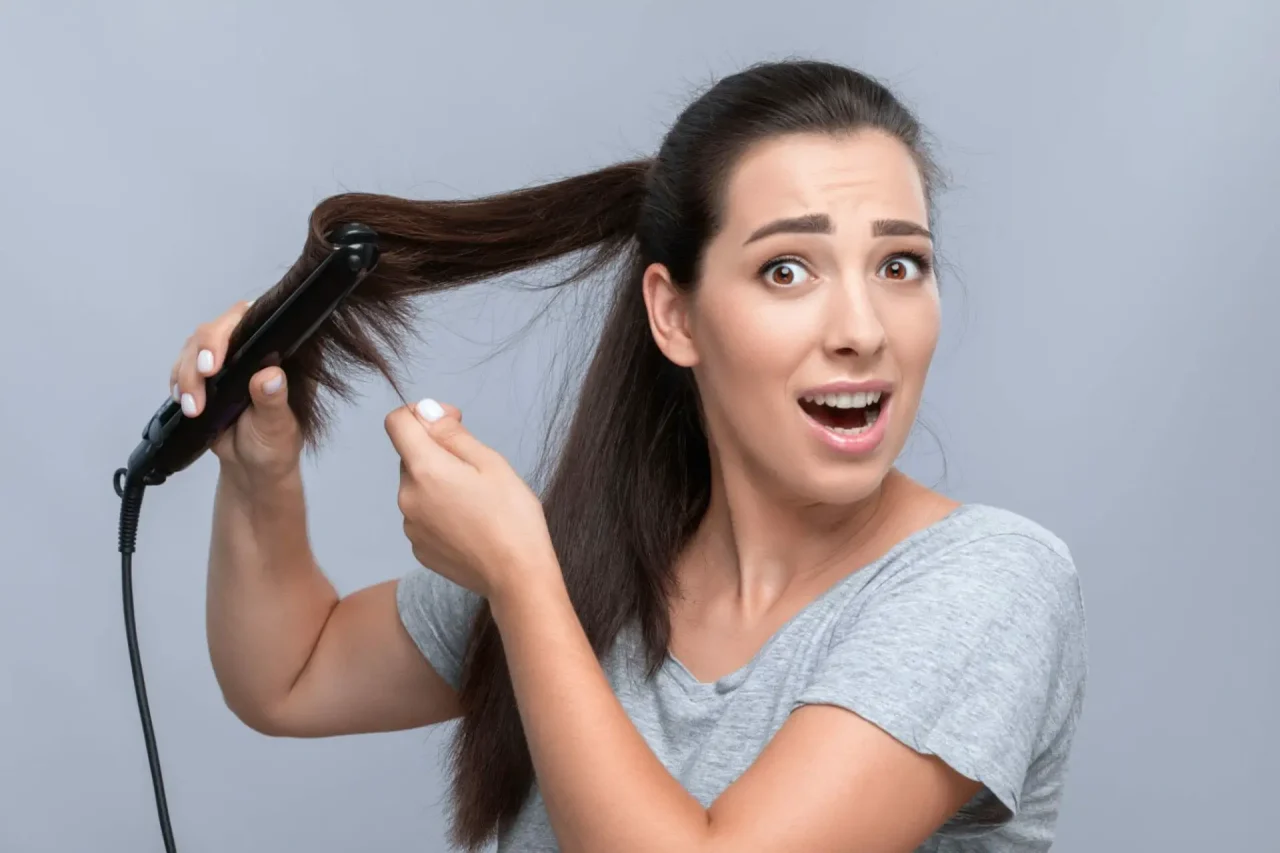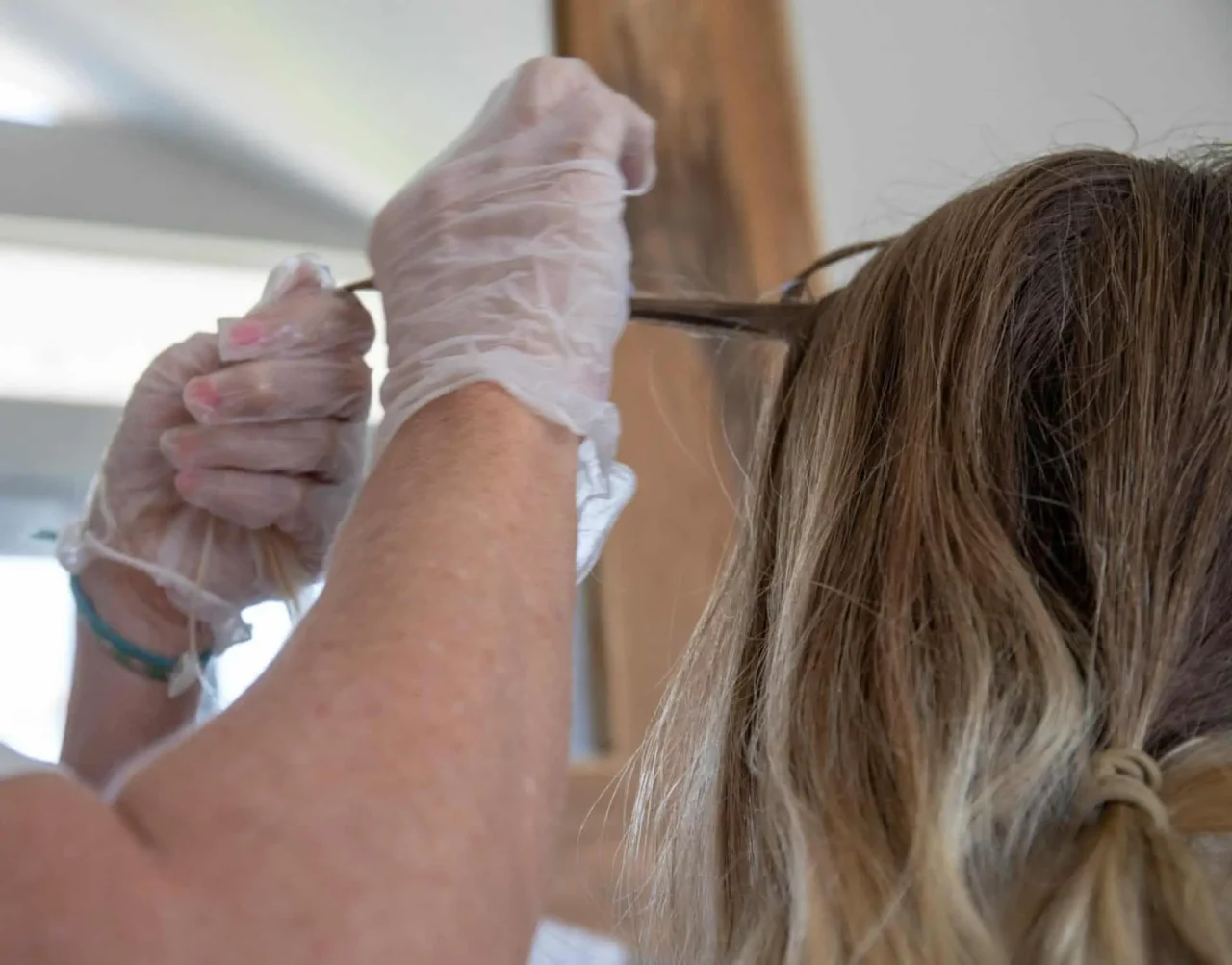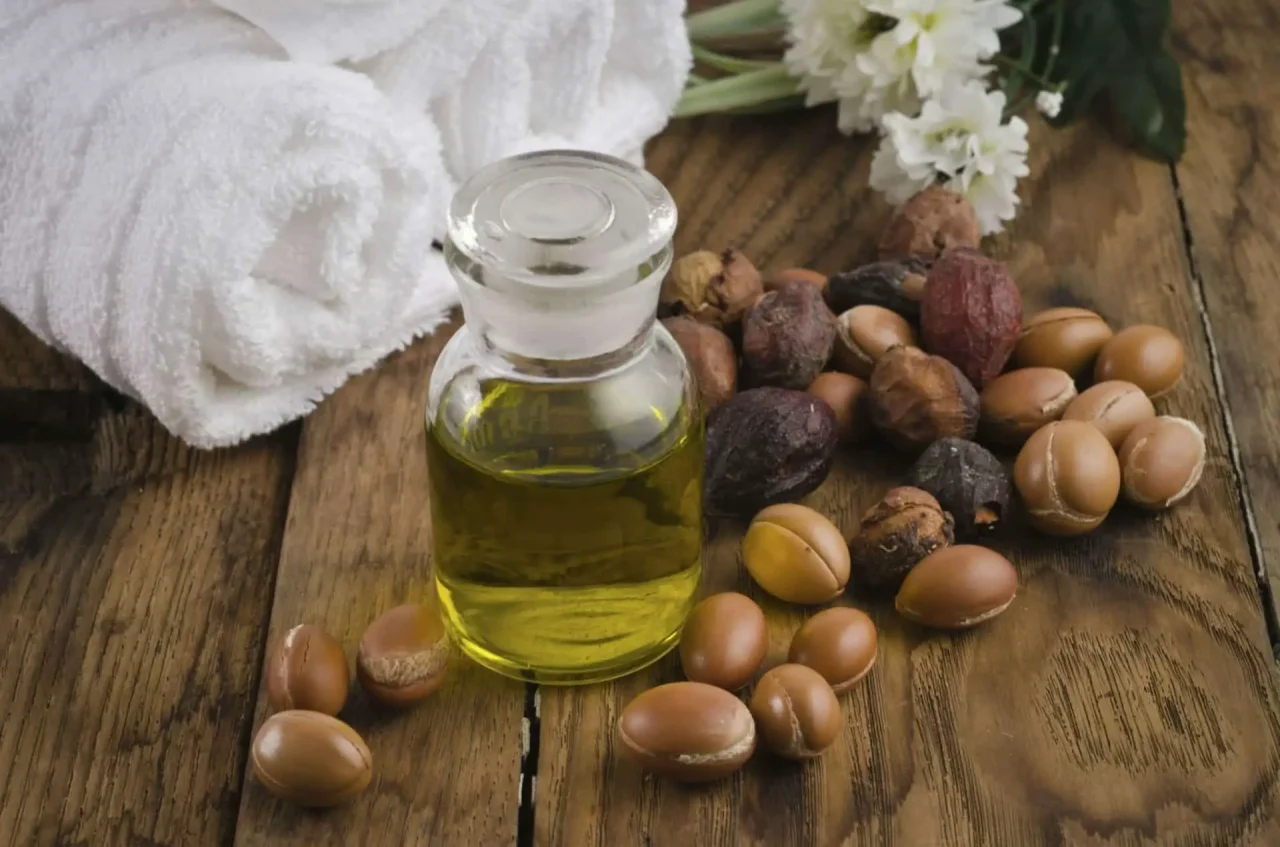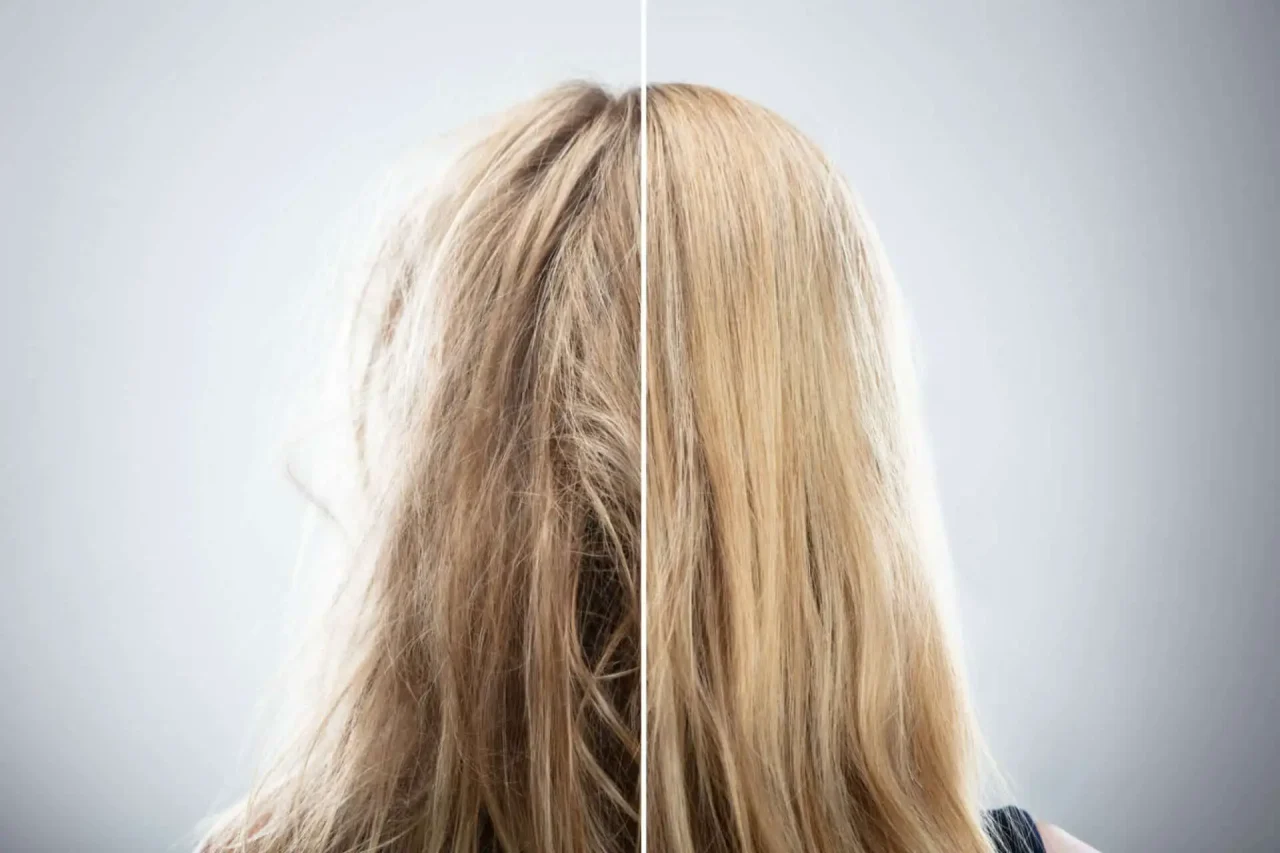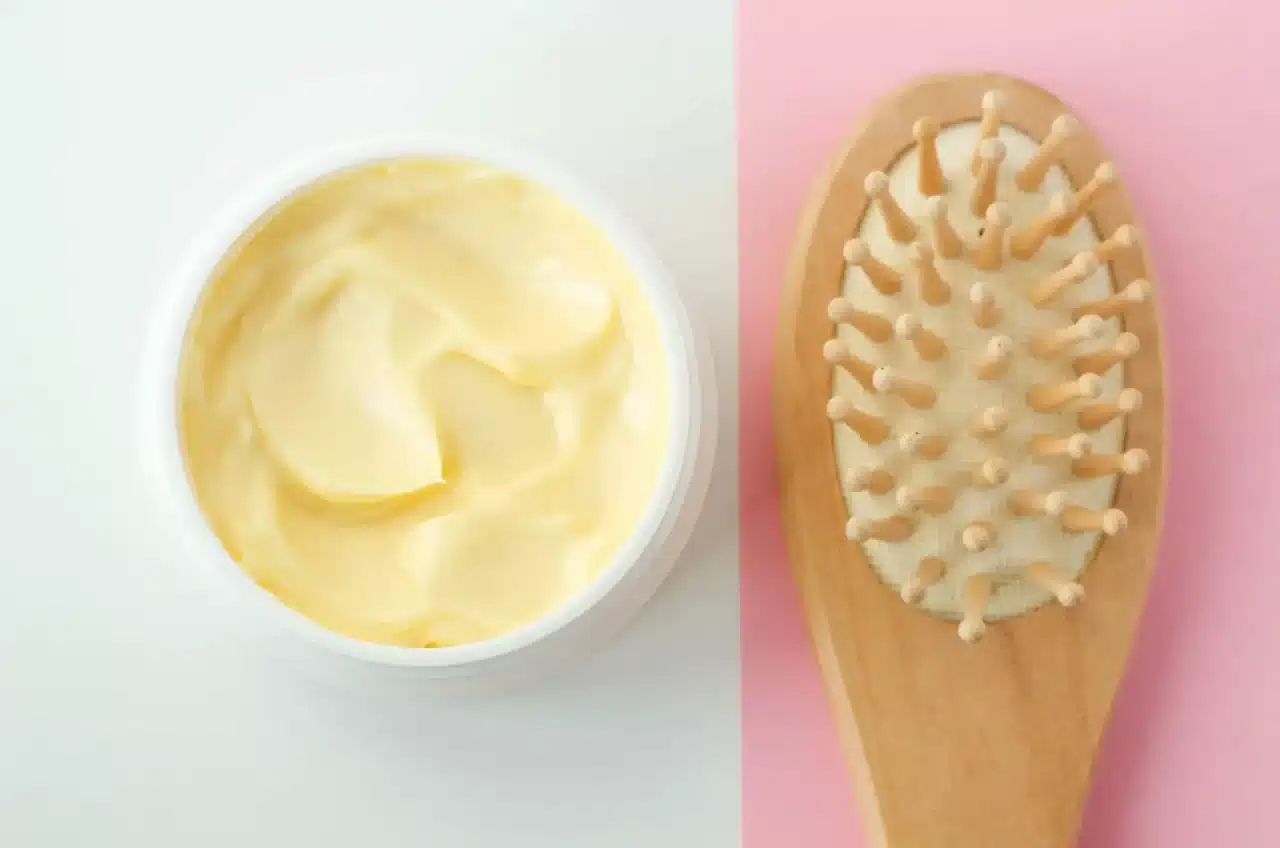Do silk pillowcases help with frizzy hair?
Yes, silk pillowcases help with frizzy hair. Silk pillowcases can make a difference for people who have frizzy hair. This is because they keep moisture in the hair, which leads to less frizziness.
Silk is also naturally cool, so it can help you regulate your temperature while you sleep. A cooler sleep environment may also help keep frizz at bay.
The smooth nature of a silk pillowcase means it won’t tug at your hair like a cotton pillowcase can, reducing breakage. Silk pillowcases are also hypoallergenic and won’t absorb the oils in your hair.
Note: This post may contain affiliate links, which means if you buy from my link I might make a small commission. This does not affect the price you pay. See the full affiliate disclosure here.
Triggers for the hair of frizzy hair include: sleeping on cotton pillowcases and covers, sleeping with wet hair, and aggressive blotting. A silk bedding is a great way to minimize these triggers.
Keep reading if you are interested, and you want to find out more about silk pillowcases and their benefits.

Is satin or silk better for frizzy hair?
Silk is a less porous material than satin, reducing frizziness by trapping moisture in. However, if your budget doesn’t allow you to buy silk pillowcases and bonnets, satin pillowcases can also help with frizziness.
Satin and silk are both smooth materials, which will help tame your hair. On the other hand, silk is more durable and can be washed with a machine, unlike satin.
Both fabrics can help prevent frizzy hair, but some people prefer one over the other. You should choose the one that helps you most and feels best to you.
In the end, pillowcases made out of silk are a bit pricier than those made out of cotton or other materials. Still, they do seem to have a positive effect on your hair. For this reason, especially if you have fine or frizzy hair, it might be worth the investment.
Which is the worst material for a pillowcase?
The worst material for a pillowcase by far is polyester. Polyester is uncomfortable to sleep on, and it won’t draw moisture away from your skin.
Polyester can collect dust and other allergens that can irritate your skin and lungs.
Avoid polyester pillows. They are uncomfortable, even if you don’t have sensitive skin or allergies.

Why do people put silk pillowcases on their skin?
Putting silk pillowcases on your skin is an excellent thing to do. They are hypoallergenic, regulate temperature, reduce static, reduce wrinkles, and are gentle. Here are the main reasons why:
- Silk pillowcases are hypoallergenic and allergen-free
- Silk pillowcases are a natural temperature regulator
- Silk pillowcases can reduce static and frizz in your hair
- Silk pillowcases can prevent wrinkles and fine lines
- Silk pillowcases are gentle on sensitive skin
They’re less abrasive than cotton pillowcases, supposedly leading to fewer tangles, so they’re better for hair. Also, some people say silk pillowcases are much softer than cotton ones, so they’re more comfortable for sleep.
This article is not necessarily a definitive guide to whether silk pillowcases help improve the quality of your skin. Yet, we hope this information helps you understand better why silk sleeping pillows are popular as an anti-aging product.
We’re excited to see how things progress in the future. We hope there will be some scientific backing to these pillows’ effects on promoting healthier skin.

How often should you wash silk pillowcases?
You can wash mots pillowcases once every two weeks. However, wash your silk pillowcase once a week if you have oily skin.
If you have normal skin, wash once every two weeks. If you don’tdon’t wear makeup to bed, wash your pillowcase between once and twice a month.
Pro tip: Clean silk pillowcases regularly with lukewarm water and mild detergent.
Tips for washing silk pillowcases:
- Silk pillowcases can be gently hand washed.
- Silk pillowcases can be machine washed on the most gentle cycle your machine has.
- It would be best if you didn’t put silk pillowcases in the dryer.
- You can tumble dry silk pillowcases on a low setting.
- If you hang silk pillowcases to dry, make sure they’re not exposed to direct sunlight or heat.
Do silk pillowcases help with hair growth?
It is not a miracle product, but it can help with hair growth over time. This is because of the smooth surface of the silk; it does reduce damage and breakage upon contact.
Silk pillowcases are also great for maintaining skin and hair moisture (compared to satin or cotton).
Silk pillowcases are also beneficial for those with curly hair . This is because the smooth surface of the silk doesn’t cause friction that leads to breakage or frizz. Also, silk is a smoother material than cotton, so it’s easier for long hair to slide across it without snagging.
Pro tip: Buy a silk pillowcase that’s 100-percent mulberry silk. It should be at least 22 momme in thickness.
This will ensure you get the best quality and make sure your buy will last a long time.
Over time, if you sleep on a silk pillowcase, this will result in less dryness and less damage. If your goal is more hair growth and less breakage, a silk pillowcase may help you.

Conclusion: Do silk pillowcases help with frizzy hair?
The silk pillowcase can provide you with all these benefits. It acts as an ion barrier that prevents your hair from heat damage. Plus, it keeps your hair conditioned and moisturized and prevents it from breakage. It can even keep the roots of your hair moisturized to help promote hair growth.
Our findings show that both silk and satin pillowcases help maintain smooth, healthy hair. These materials have many factors that bring these benefits to the table. First, both are smooth, which will not disturb hair while it is resting.
The smoothness of the material allows the hair to slide over it easily, causing less friction and protecting your hair from heat products. These materials also prevent tangling, slowing downtime between brushings.
These silk pillowcases have made a difference in my hair. My hair is less frizzy softer, and it doesn’t feel like it’s weighed down with the product. Overall, these pillowcases give your hair a break from all the heat tools we girls use daily.
Why do people put silk pillowcases on their skin? Because of the many benefits of sleeping on silk. It can keep your hair smooth, strong, and shiny.
It also keeps your skin from becoming dehydrated. Since it retains moisture, it is beneficial for those who suffer from skin conditions commonly caused by extreme dryness. These are eczema, psoriasis, and other flaky.
Aside from its many healing properties, people also use silk to sleep with because of its:
warmth
luxuriousness
comfortability
Did you try using silk pillowcases, and what was your experience like? Let us know in the comment section below.

